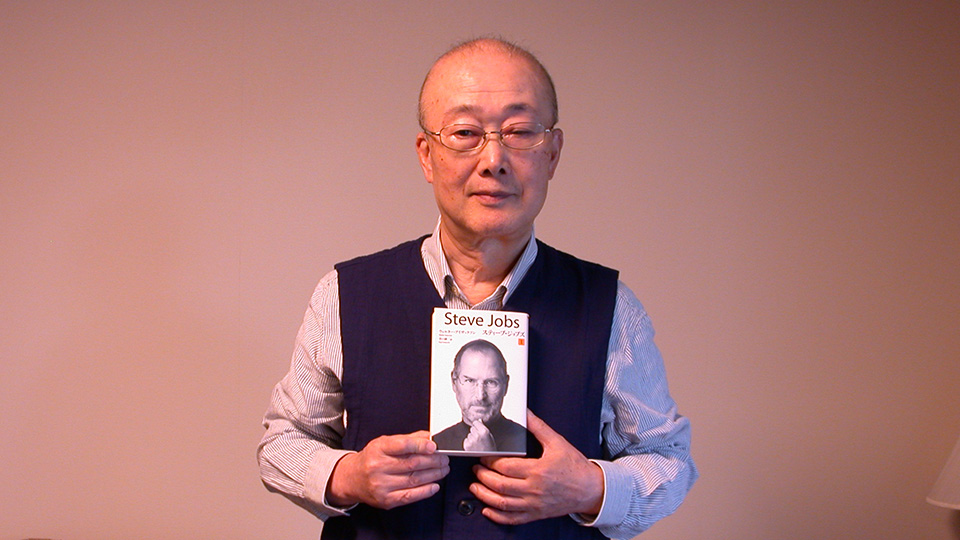人人都各不相同。身為人的管理者必須體察到這些差異,並且善用這些差異,讓每個人的能力與性向得到最佳的發揮。然而,這並非等於將人員排等級。如今產業界、教育界與政府的運作方式,卻是假設每個人都相似。
各人的學習方式不同,學習速度也不同。例如在學習技術時,有些人採用讀的方式,有些人採用聽的方式,有些人採用看圖(靜止或動態的)的方式,還有些人則採用看別人怎麼做的方式。
有內在動機與外在動機,也有矯枉過正(over-justification)的現象。
人類與生俱來有與人交往的需要,有被愛與受尊重的需要。
學習是人類出生就有的自然傾向。學習是創新的源頭之一。人人有享受工作樂趣的權利。良好的管理,有助於培養和維護這些先天的正面特質。
家庭環境可能在幼年時期就戕害了兒童的尊嚴與自重,並進而損及他的內在動機(intrinsic motivation)。而一些管理實務(例如排等級)也會徹底摧毀員工的內在動機。
**
Are You Overpraising Your Child?
All those “Good jobs!” might be undermining kids’ independence and self-confidence.
Credit...João Fazenda
By Paul L. Underwood
Aug. 13, 2020
“I love it!”
It’s a phrase I’ve uttered countless times, typically in response to a new offering from our family’s artist-in-residence, also known as my 6-year-old daughter. I’m being honest — it’s a treat when she dedicates her work to me, rather than the parent with higher approval ratings (her mother, my wife), and I take a fatherly pride in her choice of colors and attention to detail. But it turns out, I’m also undermining her efforts, by putting myself, and my approval, at the center of the conversation.
It seems like the right thing to say. After all, how many times have we parents been told that it’s better to pre-emptively praise (and reward) the behavior we want our children to demonstrate, rather than waiting to condemn them for misbehaving. But, as leading researcher Wendy S. Grolnick, Ph.D., a professor of psychology at Clark University in Worcester, Mass., puts it, praise also has a dark side.
This is because praising the outcome (“It’s beautiful!”) or the person (“You’re so smart!”) encourages the child to focus on those things. She might feel performance anxiety. He might question the conditionality of your love. (“If I’m a smart boy when I do this, I must be a stupid boy when I don’t.”) He might become more motivated by a parent’s pleasure than by the process that led to it. Future crayon masterpieces might become less fun for him to create — or disappear altogether when they’re not as highly praised.
Here’s a guide to praising — or not praising — your child.
Praise the process, not the person.
As part of the self-esteem movement in the 1970s, parents were often told to give their children positive feedback along the lines of “Great job” or “You’re so smart.” This was in contrast to the more removed and discipline-oriented parenting styles of earlier generations, and was intended to be warmer and healthier.
But researchers — notably Carol S. Dweck Ph.D., a professor of psychology at Stanford’s Graduate School of Education — studying the effect of this type of praise in the late ’90s found that it could have a harmful effect. Her research showed that children felt pressured to live up to their parents’ praise, and this in turn could lead to panic and anxiety. Even kids who didn’t experience anxiety became risk-averse, developing what Dr. Dweck later termed a “fixed mind-set.” These children were afraid to challenge themselves out of fear of letting down their parents. Dr. Grolnick said this kind of praise can be considered controlling — undermining a child’s enjoyment of and motivation for certain activities by shifting the goal to pleasing a parent.
Dr. Dweck and others researched what happened when children were praised on their efforts, instead of their selves. It turned out, these children gained confidence and felt empowered to try new things. In one example from her 1998 research, after completing a series of matrices, one group of children was told they were successful because they were smart. A second group was told they were successful because they worked hard. When presented with a new range of puzzles, children in the second group were far likelier to choose a more challenging problem. Dr. Dweck also found that these children said they enjoyed solving problems more than those in the first group, and the researchers concluded they did so because they had confidence in their abilities. She found that even if they failed at first, they were capable of working through the solution by applying themselves, a life skill almost every parent would want for his or her children.
Pay close attention to your child’s process.
Of course, there are only so many times you can say, “You must have worked really hard on that!” To provide meaningful process praise, you have to pay attention to the process itself.
Kyla Haimovitz, Ph.D., a learning engineer at the Chan Zuckerberg Initiative who co-wrote a 2017 paper on the topic with Dr. Dweck, said that praise doesn’t have to be immediate. If your child is working on a drawing, for example, you don’t need to comment on every color selection. Wait until the end, when your child shows you the drawing, and then say something like, “Ooh, I see you chose to put the purple next to the brown — that’s so interesting!”
“You can instead ask them about their process to be able to praise their learning process,” Dr. Haimovitz said. “It also allows the children to evaluate themselves, rather than have an external evaluation.” In other words, your questions will in turn encourage your child to ask him or herself those same questions, sparking curiosity and exploration.
Praise what your child has control over.
We communicate our values through praise, according to Patricia Smiley, Ph.D., a professor of psychological science at Pomona College in Claremont, Calif. One of those values is autonomy, so it’s helpful to praise what your child has control over, such as the choices they made along the way of solving a problem or drawing a picture. This helps keep expectations realistic, she said, and it also encourages them to continue doing the activity. “It goes to the intrinsic interests of the child,” Dr. Smiley said. “A parent says, ‘I see.’ It can make the child feel like, ‘Ooh, what I’m doing is fun, and my parent thinks it’s fun, too.’ They connect a parent’s good feeling with their own good feeling.”
How can we help you lead a better, more fulfilling life at home during the pandemic?
Ask us a question or tell us what’s on your mind.
Jennifer Henderlong Corpus, Ph.D., a professor of psychology at Reed College in Portland, Ore., who runs the Children’s Motivation Project, and Kayla A. Good, a Ph.D. candidate at Stanford University, write in their chapter of the book “Psychological Perspectives on Praise” that this can also increase your child’s enjoyment of praiseworthy behaviors. Saying, “Wow — it looks like you really enjoyed that project!” they write, focuses on your child’s self-determined reasons for engaging in a task. As they note, this kind of praise has been shown to predict enjoyment, engagement and performance at school and even in sports. By contrast, they write, interviews with elementary school students revealed frustration with praise that undermined their sense of agency— for example, crediting innate traits such as being smart, rather than demonstrable choices, like persistence.
Don’t praise by comparison.
It can be tempting to praise a child’s achievement by casually comparing her with others (“Wow, you jumped in the water all by yourself when your friend was too scared!”). Not only does this foster an unnecessary sense of competition, but Dr. Corpus and Good’s research suggests that it doesn’t actually motivate younger children.
Beware of praise inflation.
Inflating praise can lead to what Dr. Corpus and Good termed “praise addiction,” in which a child compulsively performs behaviors to earn approval. There’s another risk, too — one thing most researchers seem to agree on is that children can sense when praise is not genuine.
What’s particularly interesting is how this affects kids with low self-esteem. Parents (and teachers) of such children often try to boost the spirits of these kids by offering lavish praise (“Your drawing is the most beautiful I’ve ever seen!”), but kids with low self-esteem respond poorly to it. This is because this type of praise creates an impossibly high standard, and children quickly lose motivation in the face of that impossibility, according to Dr. Corpus and Good.
Instead, consider simply describing what you observed your child doing, along with a neutral expression of delight: “Wow! You dug a big hole in the sandbox with your truck!” This reinforces the behavior (and communicates that you’re paying attention) without setting an unrealistic standard.
Rather than praise, offer descriptive feedback.
In their parenting book, “How to Talk So Kids Will Listen & Listen So Kids Will Talk,” Adele Faber and Elaine Mazlish introduced the concept of descriptive feedback in 1980 (the book was updated in 2012). Your child might do something praiseworthy, but rather than compliment it — which can turn an achievement into something done for your approval — merely describe the action you saw. This in turn might encourage your child to consider and even discuss the thinking that went into their artwork. It’s similar to how asking “How was your day at school?” often invites silence, while saying something like, “I noticed a colorful drawing in your backpack” might invite your daughter to provide you with the artist’s commentary.
I’m lucky. Our daughter might not be tucking any colorful drawings into her backpack these days — in-person school in our hometown is delayed for at least a month, maybe longer — but spending long days at home allows her progress as an artist to proceed apace. Which means more masterpieces for me to praise. I don’t always get it right — “I love it!” is still my immediate, and authentic, response — but I’m working on it. And so is she.
Paul L. Underwood writes frequently on health and culture for national publications. He’s the father to two young children in Austin, Texas.















